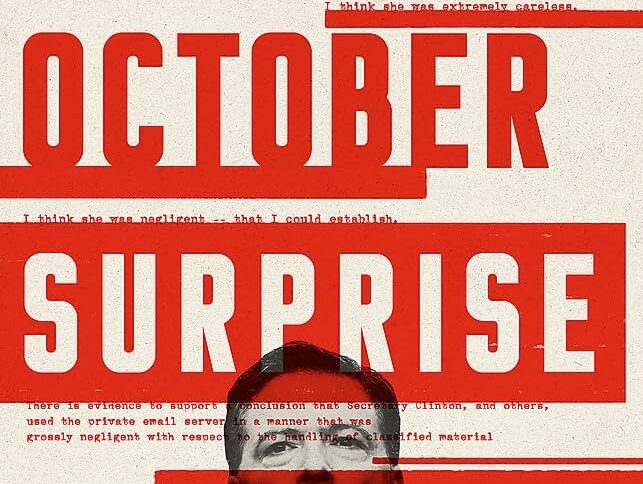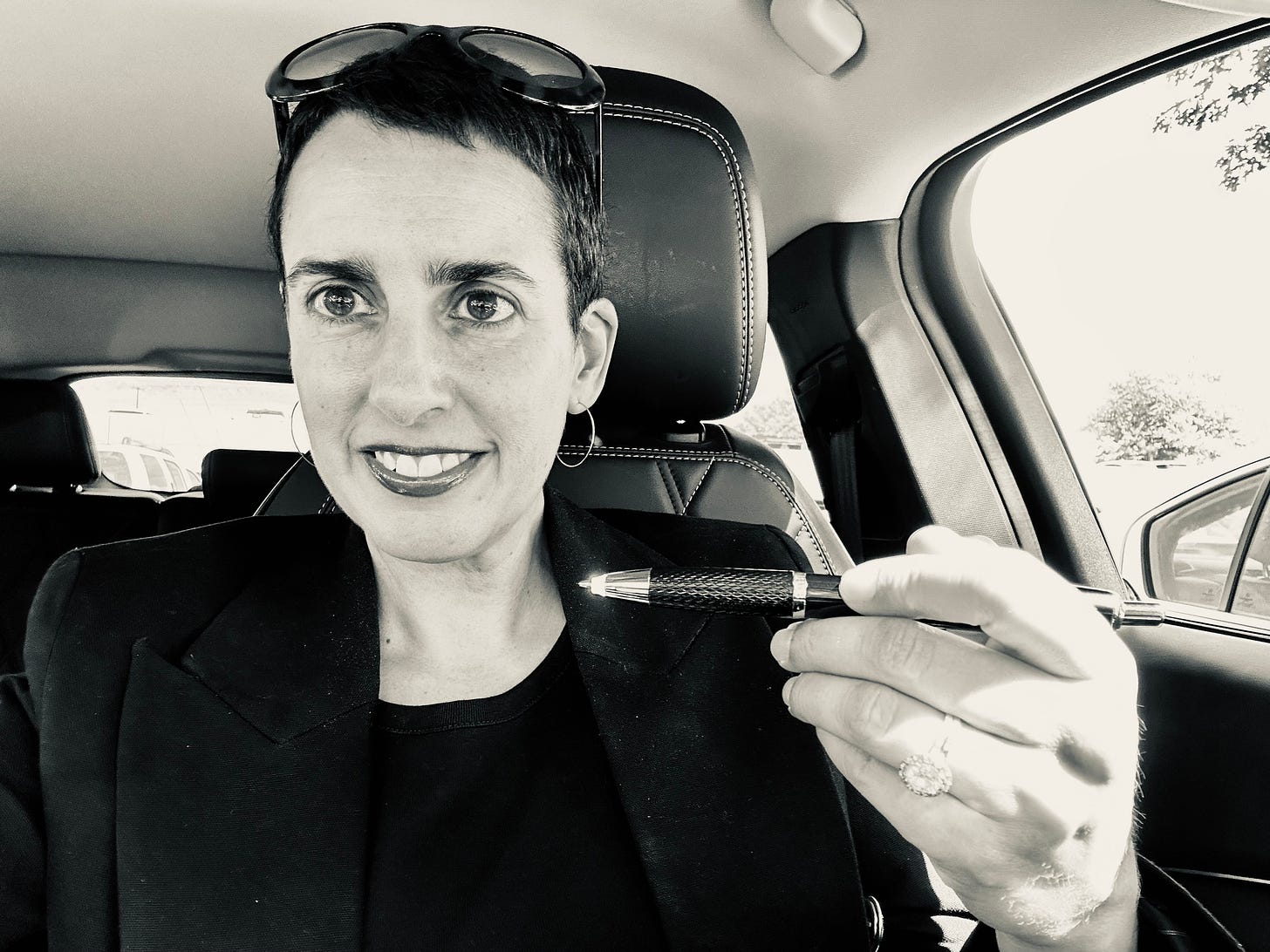INTERVIEWERS OFTEN ASK ME, only half-joking, whether the CIA is simply a front for creative writers. After all, a plethora of “formers” have penned novels in recent years: Alma Katsu, David McCloskey, James Lawler, to name a few. Last May, my novel, The Peacock and the Sparrow, based on my own experiences as a case officer in the Middle East, was published. Formers, you could say, are pouring out of the woodwork—or, more on-brand, coming in from the cold. Spybrary’s top five spy novels of 2023 contained three books by ex-intelligence officers; all of The Cipher Brief’s fiction picks of the year were penned by insiders. And recently, I learned the CIA indeed has its own writing group—puckishly named “Invisible Ink.”
Writers emerging from one of the world’s most secretive organizations is perhaps not as strange or ironic as it sounds. On its face, of course, espionage lends itself to colorful stories. There’s the tradecraft—wigs, disguises, false passports, dead drops, brush passes. The secrecy and elitism of a closed world. The sex appeal of trying to woo informants, convince odd characters to betray their countries. The exotic, often gritty, locales. The danger and high stakes of global issues like terrorism, weapons of mass destruction, rogue nation-states. If this isn’t top-shelf thriller stuff, what is?
But in the years since I left the agency, I’ve learned there are also less obvious things that compel a former to start typing. The quieter wraiths. Ghosts of decisions, the effects of war, failed or unresolved operations—all the things that pop into your head in the grocery store and wake you up at zero dark thirty. In my case, I helped apprehend an alleged Al-Qaeda terrorist in Baghdad—only to learn, years later, we might have nabbed the wrong guy. The irresolution and guilt still plague me; they came out in my novel in the form of a spy caught in the crosswinds of the Arab Spring who makes decisions that have lasting and unintended consequences. Espionage, I often say, is a profession of loose ends.
Indeed, for me, the spy business was rarely heroic or glamorous. Sometimes it was debilitating. When I joined the agency a few months after 9/11, the place was in a state of transition, even chaos. Clunkily, and at breakneck speed, we were shifting from peacetime to wartime operations, from civilian to paramilitary mode, from traditional intelligence to counterterrorism. Anxious to play a pivotal role in the Global War on Terror, the agency was deploying officers with little specialized operational or linguistic training to the most dangerous places in the world. Weighed against these huge risks, the intelligence community seemed to be making little headway. Iraq was rapidly going downhill.
In autumn of 2004, during the apex of the war, I volunteered to go to Baghdad to help track down Al-Qaeda leader Abu Musab al-Zarqawi. One year later, I came home, soured on our failures, traumatized by war, struggling with PTSD. I raised some of my concerns about operations, but felt stymied, dismissed. Months of living in a combat environment had lowered my tolerance for bureaucracy. A job founded on manipulation, I decided, wasn’t for me, probably never had been. After six years as a spy, I left the agency with nary a glance in my rearview mirror.
Last July, a few months after my book came out, a cryptic but pleasant email from the CIA landed in my Inbox. Greetings, it said. I am a member of Invisible Ink, the agency’s writers’ group, and we would love for you to come to headquarters to speak about your new novel.
I read it several times. I was gobsmacked. And intrigued. I’d had no idea such a group existed. Was this for real? And why choose me? I—who’d had an uneven experience and butted heads with the agency, who’d never found spying an easy fit. Surely, I wasn’t the right person for the gig. Also, my book didn’t exactly glorify the place—my protagonist is a slimy, alcoholic case officer who vies with his naïve, unctuous station chief, both grappling with a sometimes-uncaring, out-of-touch bureaucracy. There are snide lines like, “[the] two limitless departments of the CIA [are] money and suspicion.” Could this be a trap?
Perhaps I shouldn’t have been so skeptical. Several formers had reached out to tell me how much they’d connected with my book. It wasn’t just car chases and roof-scaling, they said. It reflected the true work we’d all done, gave voice to our dilemmas, our darkest moments. The Association of Former Intelligence Officers had interviewed me and lauded my realism.
Still, I was wary. With some trepidation (and perhaps a hint of my old counterintelligence paranoia—was this really the CIA contacting me or some Russian plant?), I said yes. I hadn’t stepped foot inside Langley in fifteen years—and never had any intention of returning. But my curiosity won out.
And there was something else. The place had shaped my entire adult life. I’d written a novel about it. It still had a hold on me.
I arrived early on a weekday morning, going through the rigamarole of security procedures that had always been reserved for poor, hapless outsiders. Much had changed since I’d last been there. Parking was plentiful; no more vying for a few remote spaces. A statue of Harriet Tubman now stood proudly beside Nathan Hale. Gone was the old cafeteria (along with its stories and legends, like the one about the employee caught stealing his lunch for more than a decade), replaced with a modern food court.
My contact, “Mark,” met me at the entrance to the New Headquarters building, an adjunct which was completed in 1991. He was lovely—gracious, welcoming. He would be my escort for the day—because, of course, I was no longer cleared to roam the halls by myself. At the Starbucks, which had opened not long before I left, I sipped my latte nervously. The mirrors in every ceiling corner reminded me of the distrust, the constant monitoring; it brought back the vague unease you learned to live with at the agency. I wondered whether someone would recognize me, give me a dirty look. I felt like I was coming home to a place I’d never really belonged.
Mark gave me a tour of the new library. It was sleek and contemporary, like something at a cutting-edge think tank or university. I met the media team from the Office of Public Affairs. They were appreciative and courteous, interested to hear about my journey. In a small conference room, Mark and a few others interviewed me on camera, which was broadcast to anonymous members of Invisible Ink throughout the CIA’s facilities.
They asked smart, engaging questions—about the publication process, the agency’s mandatory review, the unique challenges of writing about a world where much is classified. I wasn’t sure if the talk was broadcast remotely for reasons of practicality or because some of the audience were under cover. I was, of course, no longer privy to covert identities. I had that strange feeling again: neither an insider nor an outsider. But I felt connected to these writers, their need to express their experiences.
Invisible Ink, I learned, had existed even when I was at the agency. The group has ebbed and flowed over the years, often depending on the political winds (which tend to blow permissive or restrictive). Right now, the group is enjoying a renaissance. The agency seems to have become more supportive of writers, and more lenient in the content it allows to be published. Unlike my work in years past, The Peacock and the Sparrow was cleared in a few months with minimal redactions; the Publications Review Board, much maligned in past years, was wonderful to work with.
After my presentation, I chatted with the media team. They asked if I would allow them to film me for an internal piece on life after the CIA. Really? I was incredulous. You want me? I was hardly the poster child for a former agency officer. Absolutely, they assured me. We’re not the agency we used to be. We’re self-critical, introspective. People value realism, authenticity.
I was a bit stupefied. This was the agency I’d always wanted. This was an organization where, at last, I could feel I belonged.
We dined at the seventh-floor restaurant. It’s an elite place; I’d only been once before, when I’d had lunch with a senior official. I ordered a Caesar salad and black-bean burger. Members of Invisible Ink briefed me on their works-in-progress, which were varied and colorful, and drew on their intelligence experiences in unexpected and creative ways. We were a bit rushed: President Biden was coming for a visit, it was announced, and people were encouraged to leave early to avoid traffic. The waiter asked if I wanted a doggy bag for my leftovers.
On the way out, we paid an obligatory visit to the giftshop. Mark checked with the cashier on the status of my book, which they’d ordered. As in my day, the shop was stocked with cool and kitschy items, most of which don’t really reflect real-life espionage. I bought a mug and a pen flashlight—a gadget I actually used as a case officer in Baghdad (and which made it into my book). It was a special treat: under cover at the agency, I was never allowed to purchase anything.
We hurried to exit before the VIP mayhem set in. At the New Headquarters building exit, I shook hands with Mark. “I really loved your book,” he said in parting. “It was so real.”
Even insiders—particularly insiders, I realized—crave truth, a way to make sense of this strange, dark world.
As I handed in my temporary badge, I asked the security guard whether I could snap a pic of myself next to the building—outside, of course. (Now that I’m an author, I’ve had to shed my caution and insularity, and embrace social media.) The guard squirmed uncomfortably. “Never mind,” I said quickly. “It’s fine.”
Since leaving the agency, I’ve established a life firmly outside the high walls of intelligence. I’ve gotten married and have a son; I live in suburbia and travel only for vacations (or occasional book signings), not to meet assets. But retracing my decade-and-a-half-old steps through Langley, I could still feel the grip of my old world. Like my protagonist says: “espionage is a place where, even after you disappear, you can’t escape.” Writing my novel reconnected me to my past life. It exorcized old demons, unearthed a few new ones, helped me process the murk of espionage. For better or worse, I’m still glancing in my rearview mirror—only I’ve made a certain peace now with what I see.
Driving away from the agency compound, I pulled over, turned on my pen flashlight, and snapped a selfie. ###
I.S. Berry’s The Peacock and the Sparrow, a much praised spy thriller based on her experiences in the Middle East, will be available in paperback on April 16.
SpyTalk is a reader-supported publication. To receive new posts and support our work, consider becoming a free or paid subscriber.



